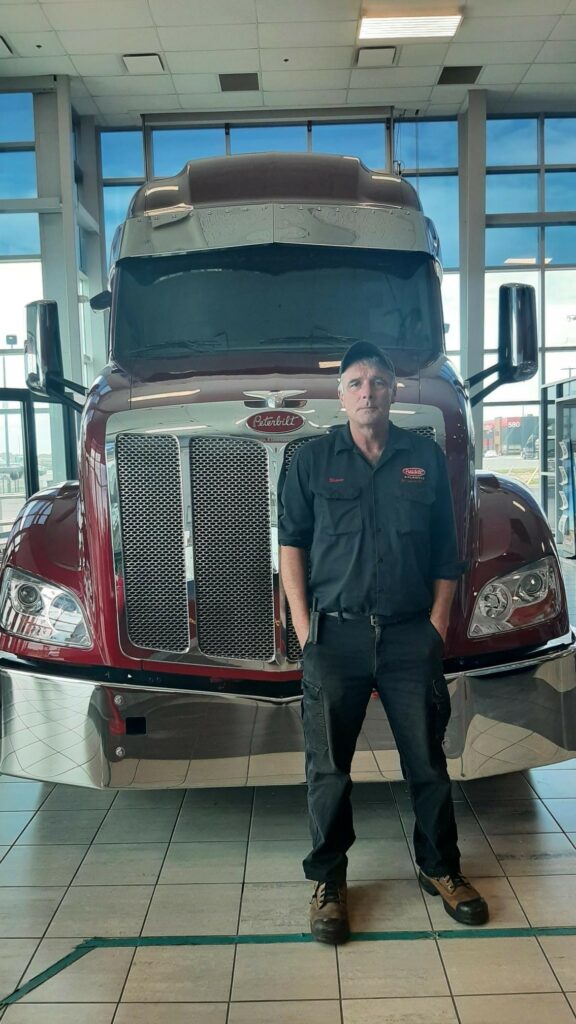Shawn Warman
Dealer technical manager
Peterbilt Atlantic
Moncton, N.B.
This is one in a series of interviews with frontline workers as Today’s Trucking celebrates National Trucking Week, Sept. 5-11.
Tell us about your job and the work it includes.
I am an interprovincial truck and transport technician and the dealer technical manager (DTM) at Peterbilt Atlantic. I began working for Peterbilt Atlantic in October 2010, doing technician training and technical support for parts and sales departments regarding anything commercial vehicle related.

DTMs have a close working relationship with the district service manager, engine managers, as well as engineering groups. This provides quick access to new information, factory technical support, as well as being able to provide some goodwill assistance to help customers who experience a failure when outside of standard warranty coverage on a case-by-case basis.
How did you come to work in the trucking industry?
I always had an interest in anything mechanical growing up, and I spent a lot of time at my uncle’s farm, where he also had a sawmill and a small garage. Not only was there farm equipment to repair, but locals would also bring just about any vehicle or piece of equipment in to have it repaired, from lawn mowers to gravel trucks, and log skidders.
In 1984 I went to NBCC (New Brunswick Community College) and took the truck and transport program. After graduating I went to work at the local Freightliner dealership performing all aspects of truck repairs. I began to specialize in diesel engine repair and then electronic engines when they first came into the industry. I then became a Freightliner and Detroit Diesel dealer trainer and provided factory training to all Freightliner and Western Star dealers in Eastern Canada.
What do you like the most about your job?
Technology changes fast in the trucking industry, and I always enjoy learning new things and the challenges of repairing those difficult-to-fix issues.
And helping younger techs by sharing my experience and providing guidance so that they can learn by doing, rather than just telling them what to do. I’ve always believed that you need to know how something is supposed to work correctly in order to repair it when it doesn’t. So you really need to understand the often-complicated systems on today’s trucks.
What is the biggest challenge the trucking industry faces today?
The ongoing driver shortages and the shortage of experienced technicians in the industry over the last several years is a big challenge. Waiting to have a truck repaired cost companies a lot of time and money, and if it’s not fixed correctly the first time, it is a very frustrating situation for everyone involved.
Also, there is currently a huge shortage of some parts in the industry, especially anything electronic, and that is causing delays not only for new vehicles waiting at the factory, but for customers’ current vehicles that may need repairs.
Why do you think the trucking industry should be celebrated?
The trucking industry employs a huge amount of people, both directly and indirectly, and therefore it really drives the economy. It is a vital part of what people do and need everyday, from groceries to consumer products, and the fuel in our vehicles. Somewhere along the supply chain, for almost any product, a truck was involved.
While some think it is not a very glamorous industry, these are the “get-it-done” people, and we all benefit from that.
'Technology changes fast in the trucking industry' - Truck News
Read More
No comments:
Post a Comment